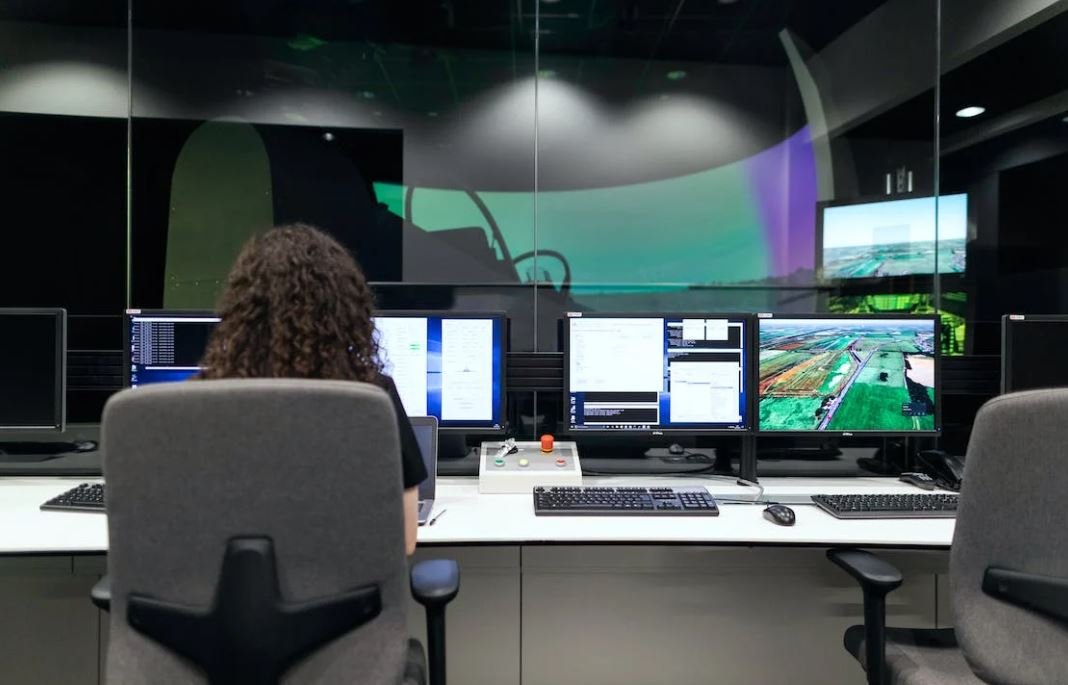AI Impact on Media Industry
The media industry is undergoing a significant transformation with the advent of Artificial Intelligence (AI). AI technologies are revolutionizing how media content is created, distributed, and consumed. From personalized recommendations to automated content creation, AI is reshaping the way we experience and interact with media. In this article, we will explore the key ways in which AI is impacting the media industry and the implications for the future.
Key Takeaways:
- AI is transforming the media industry by enabling personalized recommendations and content curation.
- Automated content creation powered by AI is revolutionizing the production process.
- AI-powered customer insights are enhancing audience engagement and advertising efficiency.
- Concerns around AI ethics, data privacy, and job displacement need to be addressed.
**Personalized Recommendations and Content Curation**
One of the key areas where AI is making an impact in the media industry is in personalized recommendations and content curation. AI algorithms analyze user data and preferences to deliver tailored recommendations, improving user engagement and satisfaction. *Machine learning algorithms are constantly evolving, learning from user behavior to refine and improve their recommendations.* Streaming platforms like Netflix and Spotify rely heavily on AI to suggest shows, movies, and songs based on individual preferences. This results in a more personalized viewing/listening experience for the audience.
Automated Content Creation
AI technologies are transforming the content creation process in the media industry. Automated content creation tools, powered by AI, can generate articles, videos, and even artwork. These tools use natural language processing (NLP) and computer vision to analyze data and create content that is indistinguishable from human-created content. *AI-generated content can significantly speed up the production process, reducing costs and increasing efficiency.* Major news outlets are already experimenting with AI-generated articles for reporting on data-intensive topics like sports scores and financial news.
**Enhanced Audience Engagement and Advertising Efficiency**
AI is also playing a crucial role in enhancing audience engagement and advertising efficiency in the media industry. AI-powered analytics tools provide valuable insights into audience demographics, preferences, and behavior. This allows media companies to tailor their content and advertising strategies to specific target audiences, resulting in higher engagement and conversion rates. *Real-time data analysis enables advertisers to optimize their campaigns and deliver highly targeted advertisements.* AI algorithms can analyze massive amounts of data and identify patterns that humans might miss, unlocking new opportunities for advertisers in reaching their target audience.
AI Impact by the Numbers:
| Metric | Value |
|---|---|
| Projected AI market size for the media industry by 2025 | $4.68 billion |
| Percentage of US adults who consume news through social media platforms | 68% |
**Addressing Concerns**
While AI presents numerous opportunities for the media industry, there are also concerns that need to be addressed. *Ethical considerations regarding the use of AI algorithms, data privacy, and biases within AI systems need to be carefully navigated.* There are also concerns about job displacement as AI automation replaces certain roles in content creation and distribution. Industry leaders and policymakers need to collaborate to address these concerns and ensure a responsible and sustainable implementation of AI in the media industry.
Conclusion
The impact of AI on the media industry is undeniable. It is transforming how content is recommended, created, and consumed. Through personalized recommendations, automated content creation, and enhanced audience engagement, AI is reshaping the media landscape. However, it is crucial to address ethical concerns and potential job displacement to ensure a responsible and inclusive future for AI in the media industry.

Common Misconceptions
Misconception 1: AI will replace media professionals
One common misconception about AI’s impact on the media industry is that it will completely replace human professionals. While it is true that AI can automate certain tasks and processes, it cannot fully replicate the creativity, judgment, and decision-making abilities of media professionals.
- AI can enhance the efficiency of media professionals by automating repetitive tasks.
- Media professionals are still needed for content creation, strategy, and critical thinking.
- AI tools are tools, not replacements, and they require human input and supervision.
Misconception 2: AI will only benefit large media companies
Another misconception is that AI will only benefit large media companies that have the resources to invest in advanced technologies. However, AI tools and solutions are becoming more accessible and affordable for smaller media organizations as well.
- AI can help small media companies analyze data and gain insights to make better decisions.
- Smaller media organizations can use AI to optimize their production processes and improve workflow.
- AI-powered personalization can help smaller media companies deliver tailored content to their audience.
Misconception 3: AI will lead to increased job losses
Many people fear that AI will lead to widespread job losses in the media industry. However, while AI may automate certain tasks, it also creates opportunities for new job roles and skill sets.
- AI will create new job roles focused on managing and interpreting AI-generated insights.
- Media professionals can upskill and adapt to work alongside AI tools, rather than being replaced by them.
- AI can help media professionals focus on higher-value tasks that require creativity and human expertise.
Misconception 4: AI will always be biased in media content creation
There is a misconception that AI will always produce biased content. While biased algorithms can be a concern, the responsibility lies with the developers and users to ensure AI systems are trained and used in an ethical manner.
- AI algorithms can be designed to follow ethical guidelines to minimize biases.
- AI can actually help identify and address existing biases in media content by analyzing large datasets.
- Human oversight and intervention are essential in ensuring fair and unbiased AI-generated content.
Misconception 5: AI will make media content impersonal and generic
Some people believe that AI will make media content impersonal and generic, as it is based on data-driven insights. However, AI can actually enhance personalization and help media companies deliver more tailored and engaging content to their audience.
- AI can analyze user data to create personalized recommendations and content suggestions.
- Media organizations can leverage AI to create content that resonates with specific target audiences.
- AI-powered personalization can result in more relevant and engaging media experiences for consumers.

The Rise of AI in Media
The media industry has experienced numerous transformations over the years, and the rise of Artificial Intelligence (AI) is undoubtedly one of the most impactful ones. AI technology is disrupting various aspects of the media industry, from content creation to audience engagement. This article highlights ten captivating examples that showcase the profound impact of AI on the media landscape.
News Recommendation Systems
AI-powered news recommendation systems have revolutionized the way people consume news. Through advanced algorithms and user behavior analysis, these systems provide personalized news suggestions based on individual preferences, increasing engagement and user satisfaction.
Automated Video Editing
AI algorithms that automate video editing processes have significantly reduced the time and effort required to create captivating videos. With the ability to analyze raw footage, detect key moments, and add effects, AI algorithms have streamlined the video editing process, enabling content creators to produce high-quality videos more efficiently.
Speech-to-Text Transcription
AI-enabled speech-to-text transcription tools have made it easier for journalists and content creators to convert audio recordings into written text. These solutions utilize machine learning algorithms to transcribe spoken words accurately, saving time and effort while maintaining accuracy.
Real-Time Language Translation
AI-powered language translation tools have bridged communication gaps, allowing media organizations to reach global audiences more effectively. These tools use machine learning algorithms to translate content in real-time, facilitating seamless multilingual communication.
Automated Content Moderation
AI algorithms have been employed to automate content moderation processes, enabling media platforms to identify and filter inappropriate or offensive content more efficiently. This not only helps maintain a safe and engaging environment for users but also reduces the burden on human moderators.
Social Media Sentiment Analysis
Through sentiment analysis, AI algorithms can analyze social media posts and identify the sentiment associated with them (positive, negative, or neutral). Media organizations leverage this data to gain valuable insights into public opinion, track responses to their content, and tailor their strategies accordingly.
Virtual News Anchors
AI technology has enabled the creation of virtual news anchors that deliver news updates with human-like animations and voice. These AI-powered avatars have the potential to provide real-time news coverage, reducing the dependency on human news anchors.
Automated Content Generation
AI algorithms have become adept at generating content across various media formats. From news articles to social media posts and even music compositions, AI-powered content generation is enhancing efficiency and expanding the creative capabilities of media organizations.
Advanced Audience Analytics
By harnessing AI technology, media companies can extract real-time insights from user data, providing a deeper understanding of audience preferences, behavior patterns, and engagement levels. This data assists in developing more targeted content strategies and delivering personalized experiences to viewers.
Deepfake Detection Tools
As deepfake technology evolves, AI is playing a crucial role in developing advanced detection tools. AI algorithms are being trained to identify manipulated media content, aiding in preventing the spread of misinformation and protecting the integrity of news reporting.
The impact of AI on the media industry is undeniable. From revolutionizing content creation to enhancing audience engagement, AI continues to reshape the way media organizations operate. Embracing this technology holds the potential to unlock new opportunities, improve efficiency, and deliver enhanced experiences to both content creators and consumers.
Frequently Asked Questions
How is AI impacting the media industry?
AI is having a significant impact on the media industry by transforming various processes and operations. It is helping in content creation, personalized advertising, data analysis, audience targeting, and improving user experience.
What are some key applications of AI in the media industry?
Some key applications of AI in the media industry include automated content generation, predictive analytics for audience behavior, virtual reality journalism, chatbots for customer engagement, and recommendation systems for personalized content delivery.
How does AI contribute to content creation in the media industry?
AI contributes to content creation in the media industry by automating routine tasks such as video editing, transcription, and summarization. It can generate news articles, sports reports, and financial summaries based on structured data or natural language processing algorithms.
Can AI improve personalized advertising in the media industry?
Yes, AI can dramatically improve personalized advertising in the media industry. By analyzing user data and behavior, AI can deliver targeted advertisements to specific individuals based on their interests, demographics, and online activities. This enhances the effectiveness of ad campaigns and improves return on investment for advertisers.
How does AI enable better data analysis in the media industry?
AI enables better data analysis in the media industry by processing large volumes of data quickly. It can identify patterns and trends in audience preferences, content consumption, and engagement metrics. This insight allows media companies to make data-driven decisions to optimize their content and improve user engagement.
What role does AI play in audience targeting?
AI plays a vital role in audience targeting by leveraging machine learning algorithms to identify and segment target audiences. It can analyze user profiles, browsing behavior, and social media interactions to deliver personalized content recommendations, advertisements, and promotions.
How is AI revolutionizing user experience in the media industry?
AI is revolutionizing user experience in the media industry by providing personalized recommendations, interactive interfaces, and voice-controlled systems. It enables media companies to create immersive experiences through virtual reality and augmented reality technologies, enhancing engagement and satisfaction.
What are some challenges in implementing AI in the media industry?
Some challenges in implementing AI in the media industry include data privacy concerns, ethical considerations, algorithmic biases, and the need for continuous technological advancements. Additionally, integrating AI systems with existing infrastructure and workflows can require significant resources and expertise.
How can AI help in combating fake news?
AI can help in combating fake news by analyzing content sources, fact-checking claims, and detecting patterns of misinformation. Natural language processing algorithms can identify inconsistencies and flag potentially false or misleading information. AI-powered recommendation systems can also promote credible sources and balanced perspectives.
What future trends can we expect in AI adoption within the media industry?
In the future, we can expect increased AI adoption within the media industry, with advancements in areas such as voice recognition, predictive analytics, automated content creation, and hyper-personalization. AI will continue to transform content delivery, audience engagement, and overall user experience.




